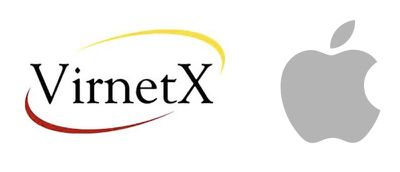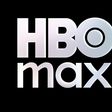Apple Won't Get Rehearing in VirnetX Patent Infringement Battle Dating Back to 2010, Court Rules
Apple will not be able to get a rehearing in its ongoing patent battle with VirnetX to argue that the patents it is accused of infringing are invalid, reports Bloomberg.
The U.S. Court of Appeals for the Federal Circuit today rejected Apple's request to reconsider a November ruling that confirmed Apple infringed on two VirnetX patents.

The patent dispute between VirnetX and Apple dates back to 2010 when VirnetX accused Apple's FaceTime feature of infringing on its intellectual property, and there are multiple lawsuits involved.
In this particular case, VirnetX was awarded $502.6 million in April 2018 after a court ruled that Apple's FaceTime, iMessage, and VPN on Demand features infringed on four VirnetX patents related to communications security.
An appeals court later reexamined the ruling and determined that Apple had infringed on two VirnetX patents, but the other two counts were reversed in November 2019 and the $502.6 million award was vacated. The case was sent back to a lower court to determine whether revised damages can be calculated or if there will be a new damages trial, but the ruling was ultimately in favor of VirnetX.
At this time, with Apple's request for a rehearing on patent validity denied, Apple and VirnetX are awaiting details on the new damages Apple will be required to pay.
In a separate case, Apple was ordered to pay $440 million to VirnetX for similar patent infringement issues. Apple appealed that ruling multiple times as well, but an appeals court in January 2019 ruled in VirnetX's favor, leaving Apple responsible for a $440 million patent infringement fee.
Popular Stories
Apple should unveil the iPhone 17 series in September, and there might be one bigger difference between the Pro and Pro Max models this year.
As always, the Pro Max model will be larger than the Pro model:iPhone 17 Pro: 6.3-inch display
iPhone 17 Pro Max: 6.9-inch displayGiven the Pro Max is physically larger than the Pro, it has more internal space, allowing for a larger battery and...
Since the iPhone X in 2017, all of Apple's highest-end iPhone models have featured either stainless steel or titanium frames, but it has now been rumored that this design decision will be coming to an end with the iPhone 17 Pro models later this year.
In a post on Chinese social media platform Weibo today, the account Instant Digital said that the iPhone 17 Pro models will have an aluminum...
The calendar has turned to July, meaning that 2025 is now more than half over. And while the summer months are often quiet for Apple, the company still has more than a dozen products coming later this year, according to rumors.
Below, we have outlined at least 15 new Apple products that are expected to launch later this year, along with key rumored features for each.
iPhone 17 Series
iPho...
Apple is continuing to refine and update iOS 26, and beta three features smaller changes than we saw in beta 2, plus further tweaks to the Liquid Glass design. Apple is gearing up for the next phase of beta testing, and the company has promised that a public beta is set to come out in July.
Transparency
In some apps like Apple Music, Podcasts, and the App Store, Apple has toned down the...
In 2020, Apple added a digital car key feature to its Wallet app, allowing users to lock, unlock, and start a compatible vehicle with an iPhone or Apple Watch. The feature is currently offered by select automakers, including Audi, BMW, Hyundai, Kia, Genesis, Mercedes-Benz, Volvo, and a handful of others, and it is set to expand further.
Apple has a web page with a list of vehicle models that ...
Apple's next-generation iPhone 17 Pro and iPhone 17 Pro Max are just over two months away, and there are plenty of rumors about the devices.
Below, we recap key changes rumored for the iPhone 17 Pro models.
Latest Rumors
These rumors surfaced in June and July:Apple logo repositioned: Apple's logo may have a lower position on the back of the iPhone 17 Pro models, compared to previous...
New renders today provide the best look yet relocated Apple logo and redesigned MagSafe magnet array of the iPhone 17 Pro and iPhone 17 Pro Max.
Image via Majin Bu.
Several of the design changes coming to the iPhone 17 Pro model have been rumored for some time, such as the elongated camera bump that spans the full width of the device, with the LiDAR Scanner and flash moving to the right side.
...
iPhone 17 models will feature a redesigned Dynamic Island user interface, according to a post today from Digital Chat Station, an account with more than three million followers on Chinese social media platform Weibo. The account has accurately leaked some information regarding future Apple products in the past.
The account did not share any specific details about the alleged changes that are ...
Amazon is back with its annual summertime Prime Day event, lasting for four days from July 8-11, the longest Prime Day yet. As it does every year, Prime Day offers shoppers a huge selection of deals across Amazon's storefront. With the event now underway, we're tracking numerous all-time low prices on Apple gear right now.
Note: MacRumors is an affiliate partner with Amazon. When you click a...






















